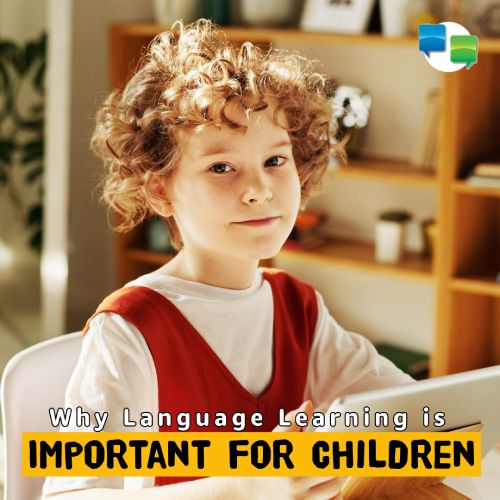Shares Hello-Hello Language on Go, the Leading Language App Developer for Kids for iOS Devices
In today’s interconnected world, language learning has become an increasingly valuable skill for children. Beyond the obvious practical benefits, such as improved communication and enhanced cognitive development, there are numerous reasons why language learning is important for children. In this blog, we will explore the multifaceted advantages of introducing children to new languages early in life.
Cognitive Development:
Research has consistently shown that language learning has a profound impact on children’s cognitive development. Learning a new language helps children improve problem-solving skills, memory, and creativity. It enhances their ability to think critically, which is beneficial not only for language-related tasks but also for various other areas of learning.
Enhanced Communication:
Language is the primary means of communication, and being proficient in multiple languages significantly expands a child’s ability to connect with people from diverse backgrounds. This skill not only fosters cultural understanding but also opens doors for friendships and collaborations across borders.
Cultural Awareness:
Learning a new language often involves learning about the culture and history of the people who speak that language. This exposure broadens a child’s worldview and instills empathy and respect for cultural differences. It helps them become more culturally sensitive and aware global citizens.
Academic Success:
Studies have consistently demonstrated a strong link between language learning and academic success. Multilingual children tend to perform better in standardized tests, have improved problem-solving skills, and excel in reading, writing, and mathematics. Learning new languages can even boost their overall academic performance.
Career Opportunities:
In a globalized world, employers increasingly value employees who are multilingual. Knowing multiple languages can provide children with a competitive advantage in the job market, as it opens doors to international job opportunities and enhances their prospects in various fields.
Cognitive Flexibility:
Language learning requires cognitive flexibility, and the ability to switch between languages and adapt to different linguistic and cultural contexts. This skill is not only valuable in language learning but also transfers to other aspects of a child’s life, making them more adaptable and versatile individuals.
Improved Problem-Solving Skills:
Language learning often involves tackling complex grammar rules and vocabulary. As children engage in this process, they develop strong problem-solving skills. They learn to approach challenges with patience and perseverance, which is a valuable life lesson.
Increased Empathy:
By learning another language, children develop empathy and understanding for those who may struggle with communication. This fosters tolerance and compassion, creating well-rounded individuals who can engage in meaningful relationships and contribute positively to society.
Boosted Self-Esteem:
Successfully learning a new language is an accomplishment that can significantly boost a child’s self-esteem and confidence. It shows them that they can conquer challenges and achieve their goals with dedication and effort.
In all, language learning is not just about acquiring a new skill; it’s a transformative experience that enriches a child’s life in countless ways. From cognitive development to enhanced communication, cultural awareness, and career opportunities, the benefits are far-reaching. As parents and educators, it is our responsibility to encourage and support language learning in children, helping them become more well-rounded, empathetic, and successful individuals who can thrive in our diverse, interconnected world.


